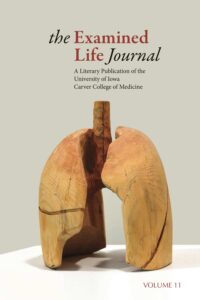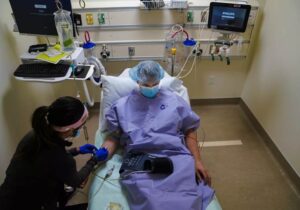One thing I’ve learned writing patient advocacy blogs, there are many wonderful advocates dedicated to educating and informing others on health and healthcare. Like me, their goal is to empower people with information so they can advocate for themselves and those they love more effectively during health challenges.
Today’s post highlights three of these blogs, three different aspects of healthcare – heart health, breast cancer, and improving relationships between patients and healthcare providers. This information may be useful to you or to someone you know. Please share as you see fit.
Heart Sisters
myheartsisters.org
Created by Carolyn Thomas
Background: In 2008 Carolyn was hospitalized with a myocardial infarction, a “widow-maker” heart attack after a mis-diagnosis of acid reflux from the same Emergency Room two weeks earlier.
Objective: Dedicated to providing information and support to women living with heart disease.
Website: Full of some stunning statistics (e.g. heart disease kills six times more women worldwide than breast cancer) as well as loads of practical information such as how heart attacks often present differently in women than men and what are the signs of heart attack in women.
Blog: Carolyn posts every Sunday and these posts are enlightening. Examples of recent articles:
- Heart Disease: Decades in the Making
- Post-stent Chest Pain
- Covid-19 Empty Beds: when heart patients are afraid to seek help
Book: A Woman’s Guide to Living With Heart Disease
Social Media: Follow HeartSisters on Twitter – @HeartSisters
Nancy's Point
nancyspoint.com
Created by Nancy Stordahl
Background: In 2008, Nancy’s mother died from metastatic breast cancer. In 2010, Nancy was diagnosed with stage 2b breast cancer. She is also brca 2+.
Objective: Dedicated to providing information and support about breast cancer and loss. As Nancy states:
“I share candidly about my breast cancer experience. I refuse to sugarcoat this horrible disease. If you or a loved one has been diagnosed with cancer or if you are grieving, you’ve come to the right place.”
Website: Very comprehensive site sharing key information related to diagnosis, treatment, chemotherapy, hair loss, mastectomy and reconstruction. Deep dives on other aspects related to the cancer experience – survivorship, advocacy, and grief.
Blog: Nancy posts weekly. The information is extraordinarily relevant and practical. Examples include:
- 15 Shitty Things Cancer Has Taught Me
- Breast Cancer Recurrence – Let’s Talk About It
- I Am Afraid (facing bi-lateral mastectomy)
Book: Nancy has published several books, her memoir is: Cancer Was Not a Gift and It Didn’t Make Me a Better Person.
Social Media: You can like/follow Nancy on Facebook – facebook.com/NancysPoint and Twitter – @NancysPoint
How to Talk to Your Doctor
howtotalktoyourdoctor.com
Created by Christie VanHorne
Background: Christie, with a Master’s in Education and another in Public Health, brings 20 years of experience in the health sector to her patient advocacy. Christie is President of CVH Consulting, a public health consulting firm providing training and health education to non-profit, government and public health organizations.
Patient-Centered Programs: Such programs focus on educating those living with chronic disease, facilitating support groups, as well as providing community-based prevention workshops.
Professional Workshops: These workshops use evidence-based training methods and facilitate health communication, skills practice, and performance-based experiences.
Blog: Started in 2020 to improve communication skills in the doctor-patient relationship. The information provided in these posts is specific and immensely valuable. Examples include:
Podcast: Since January 2021, Christie co-hosts a podcast about periods called FLOW. This is a monthly podcast for women with bleeding disorders, menstruating individuals who experience extreme bleeding and those looking for more access to menstruation-health information
Social Media: Follow Christie on Facebook – facebook.com/howtotalktoyourdoctor
These are three great patient advocacy blogs. Each of these women have pulled together a wealth of information intended to help others faced with similar health challenges. Should you, or someone you love, need such information please take a look because each of these sites will help answer many questions you will have. Let me know if you find this type of information valuable and I will highlight the excellent work of other patient advocates in future posts.
All my best.



